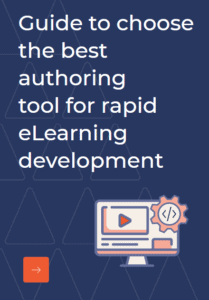Centers for Disease Control and Prevention (CDC) estimates that each year 48 million people get sick from a food borne illness, 128,000 are hospitalized, and 3,000 die. Scary indeed! The issue pertains, and the reason is that Food and Safety is often ignored while eyeing for increased profit, sudden rush etc. However, the lack of care can often be attributed to lack of proper training too.
CDC further points out the following challenges to food safety:
- Changes in our food production and supply, including more imported foods
- Changes in the environment leading to food contamination
- Finding more multistate outbreaks
- New and emerging bacteria, toxins, and antibiotic resistance
- Unexpected sources of food borne illness, such as ice cream and raw sprouted nut butter.
Food safety training is a legal requirement in some countries, while it still has a long way to go in others.
For Whom?
Popular thought is that only Chefs and Food Supervisors need to be aware of the food safety norms. However, that is not the case. Even companies/businesses that handle food, i.e. food processing units, manufacturers of food products, hotels, or even small-medium restaurants should essentially be aware of the food safety rules and procedures.
What does it Cover?
Food safety covers everything from the mandatory practices, procedures and processes that need to be followed to ensure safety and hygiene during every stage from production, procurement, and storage to preparation and presentation. This of course covers everything related to food handling, cooking, storage etc. in restaurants, hotels etc. too.
Why eLearning?
While food safety training has normally been imparted trough classroom training, things have slightly changed now. The Food Manufacturing-Distribution industry has come a long way, processes have been automated and not many are handled manually today. The global expansion of many hotel chains, manufacturers etc. has made the employees mobile, making classroom training tough to manage. Moreover, with employees joining every now and then, holding training sessions for each individual can be impractical and costly. This is where eLearning jumps in. Apart from the convenience of training, eLearning offers many other benefits:
- eLearning is flexible, and learners can access safety training any time they want, as per their convenience.
- With multi-device, responsive design etc. eLearning courses can be accessed easily on mobiles and other devices.
- eLearning can be translated and localized easily, hence making the course available in multiple languages to cater to a broader audience spread across the globe.
- While the scenarios used in classroom training can be text based and explanative, eLearning can provide a better visual setting to help the learners explore a particular situation and make decisions about the actions to be taken or precautions to be followed. eLearning allows the learners to experiment and learn from their mistakes without causing any actual harm.
- While face-to-face sessions can be rushed and set at a particular pace, eLearning allows the learners to learn at their own pace. Hence, can cater to learners with different skill levels i.e. from cleanliness workers to food safety inspectors.
- eLearning can be updated easily, and hence any change in the industry standards can be relayed promptly. Not just that, eLearning can also be used to provide emergency, just-in-time support, or as refresher courses too.
- eLearning that is designed carefully can capture the learner’s attention and keep them hooked, hence has higher completion rate unlike tedious and long classroom training. The interest also improves retention and hence in the long term it affects the performance of Food safety professionals.
- eLearning with its tracking and reporting features, assists in ensuring that the learners are trained well. Assessments and other reports help in understanding the learning pattern and the effectiveness of the course, it also helps in scheduling and rescheduling courses, keeping a track of those who need additional training etc.
Food safety training is a continuous and meticulous process, as the norms and issues are constantly changing. From innovative processes in production, new packaging methods, new contamination issues, the training content needs constant modification and update. eLearning adapts to such changes easily, hence keeping the employees well-trained and food safety ready always, which in turn helps companies in staying compliant to the industry standards.



